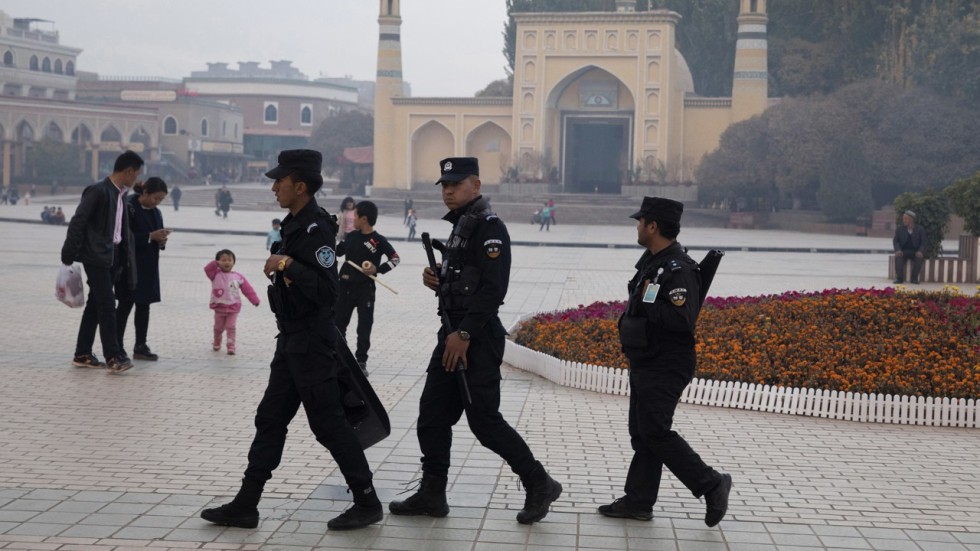Chinese officials had earlier denied existence of arbitrary detention centres and enforced political re-education
China’s far-western Xinjiang region has revised its legislation to allow local governments to “educate and transform” people influenced by extremism at “vocational training centres” – a term used by the government to describe a network of internment facilities known as “re-education camps”.
Chinese officials had earlier denied the existence of such arbitrary detention and enforced political re-education bases, but said some citizens had been sent to vocational centres for minor criminal misdemeanours.
The revision, issued by the regional legislature, recognises the use of such centres as part of the government’s efforts to eliminate “religious extremism”, which in recent years have also included a massive security crackdown in Xinjinag and sweeping restrictions on Islamic practices.
“Governments at the county level and above can set up education and transformation organisations and supervising departments such as vocational training centres, to educate and transform people who have been influenced by extremism,” the revised legal clause says.
Food, toothpaste targeted in China’s anti-halal campaign against Uygur minority
Apart from teaching vocational skills, the centres are required to provide education on spoken and written Chinese, and aspects of the law and other regulations.
The old version of the law was passed in March 2017. It bans a wide range of acts deemed manifestations of extremism, including wearing veils or “abnormal” beards, refusing to watch state television or listen to state radio, and preventing children from receiving national education.
China tries to spin positive message to counter criticism of Xinjiang policies
Michael Caster, a human rights advocate with Safeguard Defenders who studies China’s legal system, said the change to Xinjiang’s legislation would carry no weight on the world stage.
“International human rights law is clear, no matter how much China tries to ‘legalise’ the impermissible,” he said.
“This is just another case of [Beijing] attempting to mask the violation of human rights behind the veneer of the rule of law. What is taking place in Xinjiang is at least a gross violation of human rights if not a crime against humanity.”

